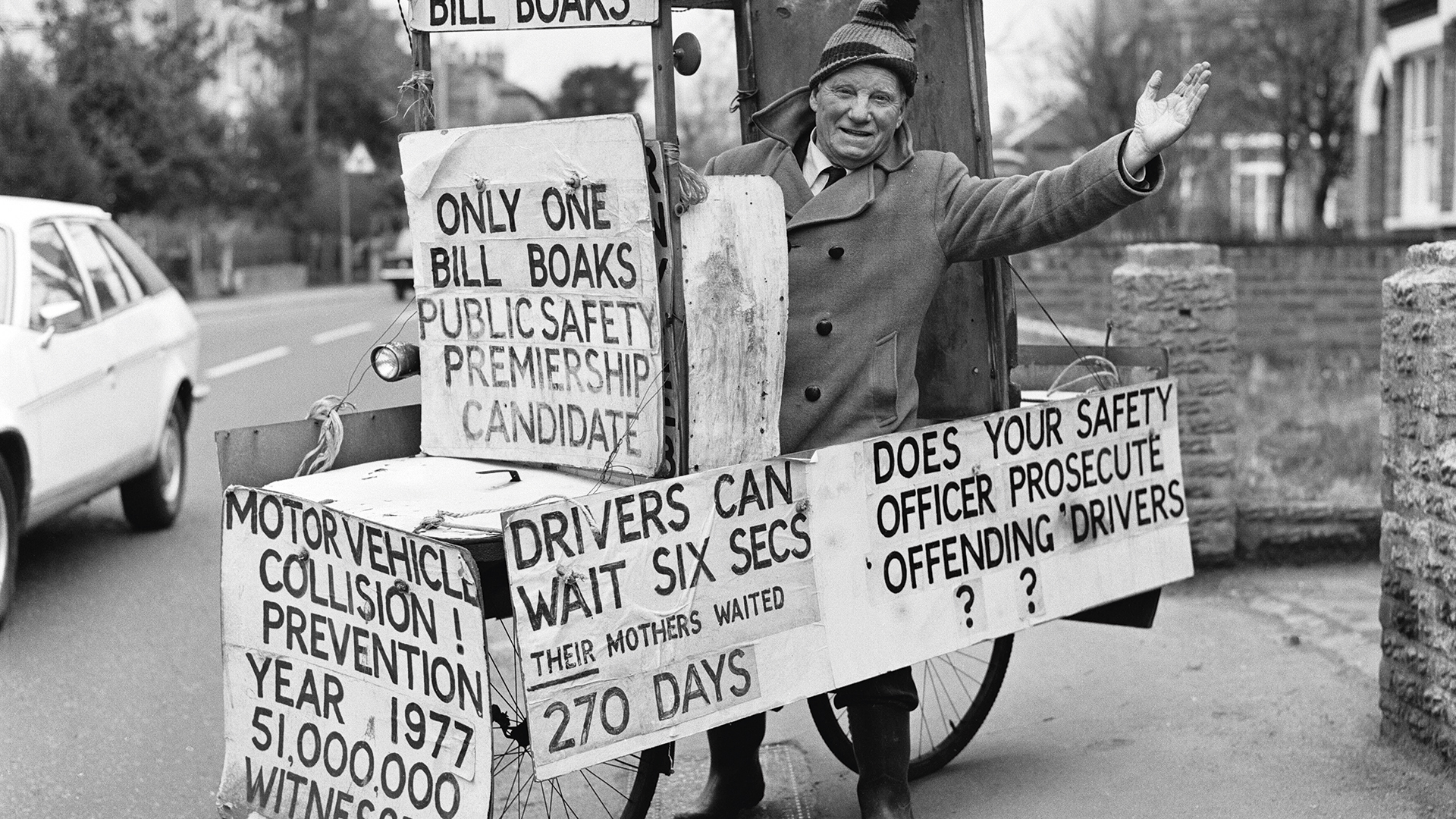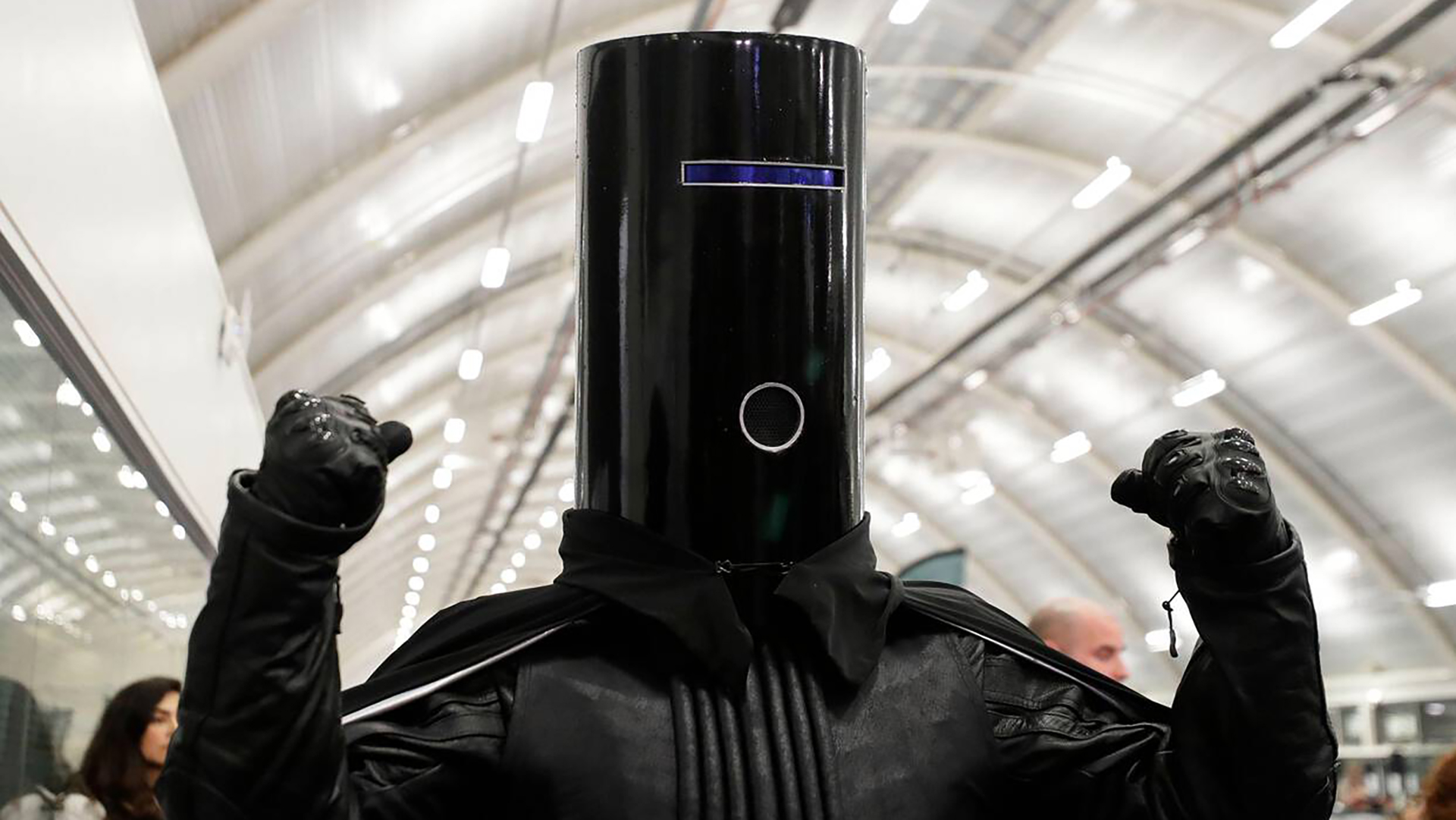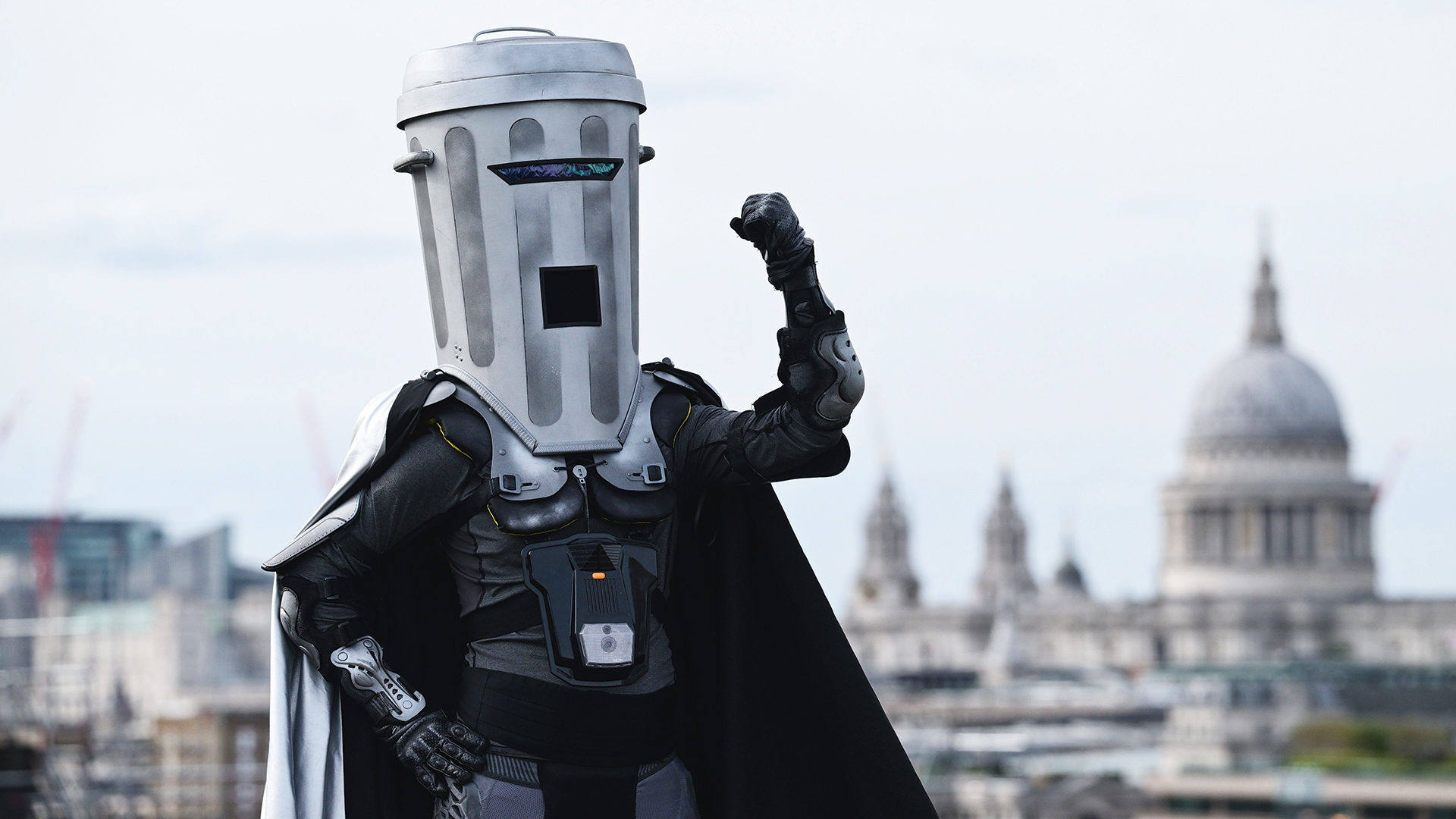While Ed Davey mastered the art of the humorous photoshoot in the 2024 general election, 2017 saw a previous Liberal Democrat leader, Tim Farron, competing against a man dressed as a fish finger. Elsewhere, reflecting a peculiarly British approach to democracy, other recent novelty candidates have included Lord Buckethead and Count Binface, someone dressed as Elmo, and various representatives of the Monster Raving Loony Party.
Get the latest news and insight into how the Big Issue magazine is made by signing up for the Inside Big Issue newsletter
Driven by a range of concerns, from political satire to earnest campaigning on a single issue, or just a general call for democratic engagement, early examples of this British tradition of novelty political candidates include naval hero and cyclist lieutenant commander William ‘Bill’ Boaks. He stood in 28 elections from 1951, firstly attempting to oppose Clement Attlee, but unfortunately registering for the wrong constituency.

Boaks became known for his extravagant bikes plastered with road safety messages, and tragically died in 1986 from injuries sustained in a road traffic incident.
However, such politics is typically dated to ‘Screaming Lord’ Sutch’s National Teenage Party in the 1960s. It framed an upstart agenda as one opposing a political culture epitomised by the Profumo affair. Sutch argued that if older people behaved so badly then younger people should be able to vote from 18. Reducing the voting age from 21 was one policy that subsequently became law. Others included legalising commercial radio, abolition of the 11 Plus exam and the pedestrianisation of Carnaby Street – the latter also supported by Boaks [and which happened in 1973].
- Count Binface’s guide to 2022: A year of political bin fires
- Al Murray on boarding school, Pub Landlord and his mysterious grandfather’s wartime movements
In the 1970s, the trend continued, notoriously spoofed by Monty Python’s election night special sketch. Referencing a similar parody by The Goodies, the 1976 Cambridge by-election saw Philip Sargent stand for a party called Science Fiction Looney. While being defeated comfortably by the Conservatives, Sargent’s campaign also opposed a racist National Front candidate.












